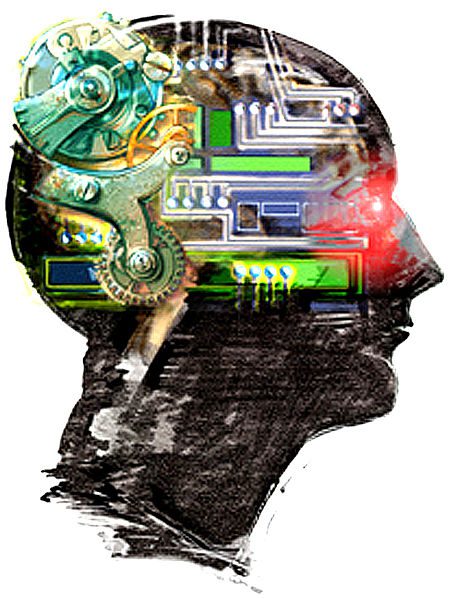
AI or artificial intelligence use and applications are growing at an accelerated rate!
Our global competitors such as Russia and China will soon pass us in artificial intelligence proficiency if we do not continue to advance. For example, Russia has made weaponizing AI for military purposes a priority!
With ONLY 194,000 new jobs (the smallest employment gain since December 2020) reported by the most recent Labor Department’s BLS statistics, a lot more high paying employment can be created as a result of artificial intelligence! This also applies to robotics as artificial intelligence becomes more and more critical to future robot engineering!
Recent Survey Demonstrates AI Adoption | Analytics Rising
Artificial intelligence investments have been boosted by the need for enterprise digital transformation during the pandemic. Last year, AI startups raised a collective $73.4 billion in Q4 2020, a $15 billion year-over-year increase. And according to a new survey from ManageEngine, the IT division of Zoho, business deployment of AI is on the rise.
1,200 technology execs were surveyed at numerous organizations that were considering using AI and analytics. 80% of respondents in the U.S. said that they’d accelerated their AI adoption over the past two years. Moreover, 20% said they’d boosted their usage of business analytics compared with the global average, a potential sign that trust in AI is growing.
“The COVID-19 pandemic forced businesses to adopt — and adapt to — new digital technologies overnight,” ManageEngine VP Rajesh Ganesan, a coauthor of the survey, said in a press release. “These findings indicate that, as a result, organizations and their leaders have recognized the value of these technologies and have embraced the promises they are offering even amidst global business challenges.”
Artificial Intelligence Applications Are Expanding
ManageEngine’s survey uncovered that the dominant motivation behind business analytics technologies is data-driven decision-making. Seventy-seven percent of respondents said that they’re using business analytics for augmented decision making while 69% said they’d improved the use of available data with business analytics. Sixty-five percent said that business analytics helps them make decisions faster, furthermore, reflecting an increased confidence in AI.
Executives responding to the survey also emphasized the importance of customer experience in their AI adoption decisions, with 59% in the U.S. saying that they’re leveraging AI to enhance customer services. Beyond customer experience, 61% of IT teams saw an uptick in applying business analytics, while marketing leaders saw a 44% surge; R&D teams saw 39%; software development and finance saw 38%; sales saw 37%; and operations saw 35%.
HR was among the groups that showed the lowest increase in business analytics usage, according to the survey. Research shows that companies are indeed struggling to apply data strategies to their HR operations. A Deloitte report found that more than 80% of HR professionals score themselves low in their ability to analyze, a troubling fact in a highly data-driven field.
Still, Ganesan said that the report’s findings reinforce the notion that AI is a critical business enabler — particularly when combined with cloud solutions that can support remote workers. “Increased reliance on AI and business analytics is fueling data-driven decisions to operate the organization more efficiently and make customers happier,” he continued.
Strategic Search Can Assist With your AI Recruiting Needs
To learn more about how Strategic Search Corporation can better assist your artificial intelligence recruitment needs click here for my full contact information or call me today at 312-944-4000. Then we can discuss how to improve your R&D (research and development), engineering, scientific, technical, IT (information technology) and manufacturing talent efforts in the highly competitive field of artificial intelligence.




10 Responses
Interesting that HR has the lowest penetration. They were early adopters in use cases like resume scanners, but that was more of a keyword search. Is it fear of lawsuits, fear of automating away their jobs or disbelief that their sensitive role could be replaced by a machine? I would think that AI could scan social media like LinkedIn and Facebook to discover good fit candidates and that AI coupled with emerging technology like Affectiva emotion sensing could handle many HR day to day responsibilities.
Jason,
I greatly appreciate your artificial intelligence insights on my latest AI article. All your views are very appreciated.
Thanks again,
-Scott
AI adoption by companies is definitely on the rise. Personal experience tells me that customers see AI based services as a differentiating and potentially a deciding factor when choosing suppliers. It would be interesting to see a survey of non-executives and their opinion on using AI/Cloud tools. I suspect that they would also comment on concerns that AI might reduce the workforce and that those that know how to use those tools would prosper but that those that do not may fall by the wayside.
Seiji,
Your comments on my recent artificial article were very insightful. Especially confirming that AI technology, scientific and research and development (R&D) adoption are on the rise.
Thanks again,
-Scott
Scott, yours and Rajesh’s comments are very much in line with the current trend. Interestingly AI has been in the business paradigm for more than 25+ years. However over the last 10 years (since Y2K was not a problem anymore) business and technology leaders have started to focus more on AI. When RPA became the household acronym, people thought it would solve the world’s problem. However when the technologist could not deliver to the business users’ needs, RPA investments were deemed a disaster and technologist got blamed for it. Same has been the story with AI. Once business and technology users got the hang of AI being not just Artificial Intelligence, but more of Augmented Intelligence, the adoption and patience to newer technology became more palatable.
Also regarding User Experience, isn’t everything in life all about experience. Be it our shopping, eating etc.. patterns, all is about what and how we experience. Once that is understood, AAA (AI, Analytics and hence Automation) is a piece of cake with User Experience as a bull’s eye. Everything leads to user experience.
Thanks for sharing this article. It only solidifies my belief for AAA.
Srini,
Your AI comments are spot on especially with all the advances in AAA (artificial intelligence, analytics and automation). I welcome your ideas in the future.
Thanks for contributing to my AI blog,
-Scott
Scott,
Thanks for starting this topic. It is one that companies should embrace more. Business Analysis and AI can be value-adds to driving business growth and research to the next level. To dive a bit deeper on the difference between the two and what is needed to get the most value, I submit the following fundamentals: Traditionally, organizations are used to some form of business analytical reporting. The scope of which is often used to evaluate what “HAS” happened within the company. This look into the past allows firms to manage what hasn’t happened yet and deploy corrective actions for future business operations. This of course requires someone to analyze the reporting and make recommendations or decisions on behalf of the firm. To be an effective business tool, it is important that a firm has data stewardship and collaboration across the departments (Data Analytics, Business units, and IT). This is where the data strategy is developed. This process will vary by company, but should be fairly rudimentary. In keeping with the focus on HR, the process may look something like understanding 1) People Strategy- What measures are being implemented to attract and retain talent? how do the people impact the company; What is their perception of the company and job satisfaction? What are the skills needed to execute, resolve problems, and accelerate rapid business growth? 2) What data do you have today, is it clean/structured, do you need have enough data? 3) Data Governance- How will you capture the data and use it provide insights? What is the process handling data within the enterprise? I highly recommend thinking of data as an asset. Data as an asset shifts the thinking in a way that allows firms and their business leaders to monetize the data or get the most value from the data internally. Internal monetization simply means leveraging the data insights to provide additional training, realign resources, or add new headcount in a way that results in higher productivity for the company. Lastly, everything that you’ve established in your Business Analytics and Data Management strategy can be used as inputs when deploying Artificial intelligence and machine learning. AI allows firms to automate tasks that would ordinarily be done by a human. We see this every day, but may not realize it. Again, keeping with the focus on HR, an organization may deploy learning management systems (LMS) with AI capabilities. One example is that Learning Management systems can evaluate trainings completed by an employee and recommend additional content based on the score until satisfactory. Although machine learning isn’t my area of expertise I will continue to learn. I’m sure there are many SMEs out there to contribute to this topic.
Darrell,
Your comments about Business Analysis and AI can be value-adds to driving business growth and research to the next level are spot on! Additionally, I greatly appreciate all your insights about Data Analytics, Business units, and IT. Please feel free to comment in the future to my blog. My readers will definitely benefit from your expertise.
Thanks again,
-Scott
Keep in mind that there’s no strict definition of what is, or is not, AI. It’s become a broad term for all kinds of applied statistical analysis, from relatively new, complex and impactful technology such as self-driving vehicles to well-established straightforward methods that have been used by marketers through much of the 20th century. It’s important to examine surveys and other materials on this topic with care to understand (or at least try to understand) specifically what kind of math and application is involved.
Meta,
I greatly appreciate all your insights on AI related to my recent artificial intelligence article. Please feel free to comment as much as you like on any of my technical, engineering, scientific and R&D (research and development) posts.
Thanks again,
-Scott
Comments are closed.